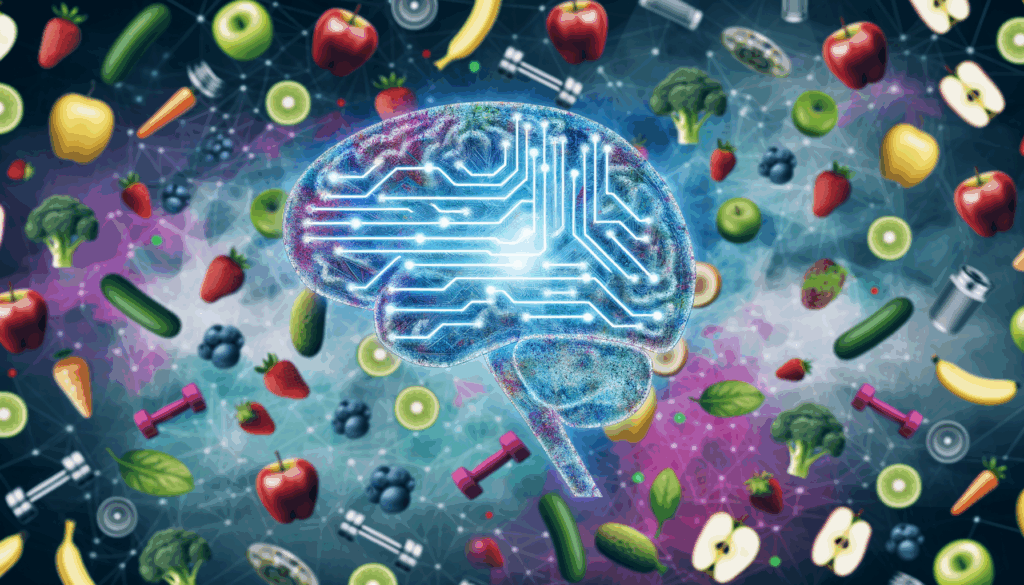Understanding the Unique Nutrition Challenges of Neurodivergent Individuals
Nutrition plays a crucial role in the overall health and well-being of everyone, but for neurodivergent individuals, the challenges can be particularly complex. Neurodivergent nutrition, which encompasses conditions such as autism spectrum disorder (ASD), attention deficit hyperactivity disorder (ADHD), dyslexia, and other neurological differences, requires a tailored approach to meet the unique needs of these individuals.
Sensory Sensitivities and Food Aversions
Many neurodivergent individuals, especially those with ASD or sensory processing disorder (SPD), may experience sensory sensitivities and food aversions. These sensitivities can make certain textures, tastes, smells, or specific food groups aversive or overwhelming, limiting their food choices and making it challenging to meet their nutritional needs.
For instance, a person with ASD might find the texture of certain fruits or vegetables unbearable, leading them to avoid these nutrient-rich foods altogether. Tools like the Calorie Calculator Cloud can help by providing personalized dietary recommendations that take into account these sensitivities and preferences.
Rigid Eating Patterns and Preferences
Neurodivergent individuals often exhibit rigid or selective eating patterns, preferring a narrow range of foods or specific brands. This can result in a limited variety of nutrients in their diet and make it difficult to achieve a balanced nutritional intake.
To address this, adapting intuitive eating principles can be beneficial. For neurodivergent people, it may be more practical to focus on eating enough and eating consistently throughout the day, rather than relying solely on hunger and fullness cues. This structured approach can help ensure they meet their nutritional needs.
Difficulty with Meal Planning and Organization
Executive function difficulties, commonly associated with conditions like ADHD or executive function disorder, can affect an individual’s ability to plan and organize daily activities, including meal planning and preparation. This can lead to irregular eating patterns or skipping meals altogether.
Using tools like the Calorie Calculator Cloud can simplify meal planning by providing clear, personalized calorie intake recommendations based on individual characteristics such as weight, height, age, and activity level. The calculator also offers flexible settings and multilingual support, making it more accessible and user-friendly.
Sensory Overload During Meal Times
Some neurodivergent individuals may experience sensory overload during meal times, particularly in crowded or noisy environments. This can make it difficult for them to focus on eating, leading to reduced appetite or avoidance of meal times altogether.
Adapting meal environments to be more comfortable and less overwhelming can help. For example, eating in a quiet room or using earplugs can reduce sensory overload. Additionally, eating with distractions such as watching TV or using a fidget toy can make the eating experience more comfortable and enjoyable for neurodivergent individuals.
Reduced Body Signaling and Emotional Hunger
Neurodivergent individuals may have difficulty recognizing and interpreting body cues like hunger and thirst. This can lead to patterns of inadvertent restriction and reactive overeating or bingeing in the evenings. For some, responding to emotional hunger by eating can be crucial for maintaining energy levels and regulating mood and emotional state.
Tools like Smart Calories – Calories Calculator or SnapCalorie can help by providing detailed nutritional analyses of meals, which can aid in making informed dietary choices and ensuring adequate calorie intake throughout the day.
Co-occurring Conditions and Lack of Resources
Neurodivergent individuals often have co-occurring conditions such as gastrointestinal issues, food allergies or sensitivities, or mental health concerns that can impact their relationship with food and nutrition. These conditions may require specialized dietary considerations or restrictions, further complicating their nutritional management.
Moreover, some neurodivergent individuals may face barriers in accessing appropriate resources, education, and support that consider the different way their brain and bodies work. It is essential to recognize that while many neurodivergent individuals may face challenges with nutrition, the specific difficulties and experiences can vary greatly between individuals. A multidisciplinary approach, including dietitians, therapists, and support networks, can help develop personalized strategies that promote healthy eating habits and address individual needs.
How Calorie Calculator Cloud Can Support Neurodivergent Nutrition
The Calorie Calculator Cloud is a powerful tool that can support neurodivergent individuals in several ways:
### Customizable and Accessible Interface
The calculator offers various design styles and is fully responsive and mobile-friendly, ensuring it can be used comfortably on any device. This flexibility is crucial for neurodivergent individuals who may have specific preferences or needs when interacting with digital tools.
### Personalized Calorie Recommendations
Using the Mifflin-St Jeor formula, the calculator determines daily calorie needs based on individual characteristics such as weight, height, age, and biological sex, as well as activity levels. This personalized approach helps ensure that the calorie recommendations align with the unique needs of neurodivergent individuals.
### Multilingual Support
The calculator is available in multiple languages, making it more accessible to a broader audience. This feature is particularly important for neurodivergent individuals who may face additional barriers due to language or cultural differences.
### Flexible Settings and Data Collection
The calculator allows users to input their personal data, such as age, weight, height, and activity level, to receive individualized results. It also supports various units of measurement and provides a flexible form builder for collecting user data, which can be useful for further nutritional planning and support.
Conclusion and Next Steps
Nutrition for neurodivergent individuals is a complex and multifaceted issue that requires a tailored and supportive approach. By understanding the unique challenges faced by these individuals and leveraging tools like the Calorie Calculator Cloud, we can provide more effective support and promote healthier eating habits.
For those interested in integrating the Calorie Calculator Cloud into their website or using it for personal nutrition planning, you can explore the different Calorie Calculator Plans available. This tool, combined with a multidisciplinary approach to nutrition, can significantly enhance the nutritional well-being of neurodivergent individuals.
By recognizing the importance of personalized nutrition and leveraging advanced tools, we can move towards a more inclusive and supportive health environment for all.








